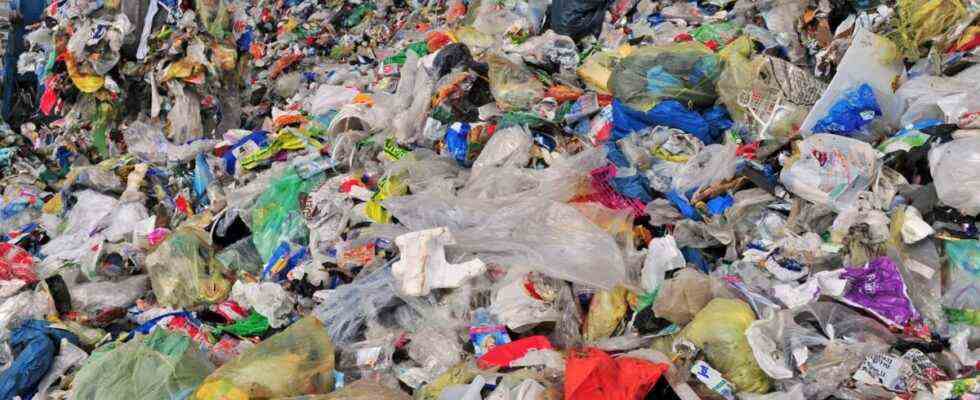The story of my private feud with our garbage began when I always asked myself at the butcher around the corner why my salami had to be wrapped three times. First the saleswomen put a plastic film around the 120 gram sausage, then they wrapped it in paper and then put the package in a paper bag. And if I wasn’t careful, they ended up cramming the whole thing into a plastic bag. Greetings to our trash can. At home I rummaged through the packaging to the sausage. I put the groceries I bought in a heap on the left and the packaging I bought on the right. The heap on the right was much larger. it could not go on like that.
And thus from the small to the large: 39.6 million tons of garbage were recently collected in German households, 476 kilograms per person. If you add everything up, Germany produces the unimaginable amount of 416 million tons of waste (as of 2019). Of course, salami packaging is only a small part of it: more than half is created in the “construction and demolition industry”.
How is this supposed to work in the long run? Things have to be made and disposed of. This often requires fossil fuels like plastic, and lots of energy and water. The beautiful goals of stopping climate change and the loss of biodiversity can hardly be achieved in this way. As is well known, Germany now imagines that it is at the forefront when it comes to waste separation, including recycling. That’s right, around two thirds of municipal waste is recycled, which is good in a European comparison. But the problem is unfortunately far from being solved.
The “anthropogenic camp” grows and grows
Because only about twelve percent of all raw materials used in Germany currently come from recycling. Even if you were to recycle all materials where this is technically possible, you would come according to a study by the nature conservation association Nabu only to 22 percent. The central problem is that we make many more things than we throw away, thus filling up the so-called “anthropogenic stock”. In order to change that, the world economy would have to undergo a gigantic transformation: from unlimited resource consumption to a circular economy in which no more raw materials are mined than can naturally grow back.
Which brings me back to my butcher. I brought my own containers and asked the saleswomen to put the sausage right there. They had to find out if they were allowed to do that. I could feel the other customers staring behind me in line and I was embarrassed at first. The circle of acquaintances also had a mixed reaction: some thought it was good, others thought I was a nutcase. But you get used to it. In the meantime, I also take the boxes to the restaurant for the food to go or to the bakery, the saleswomen know me and greet me by name everywhere. I use our freezer bags in the supermarket for fruit and vegetables. Larger plastic packaging is reused as garbage bags. And what made me very happy: the butcher now offers so-called environmental boxes for recycling.
Even if that hardly affects us anymore. Our child saw a film about a chicken slaughterhouse in religion class and has only eaten vegetarian since then. The butcher now has to do without us almost entirely.
I’m not going to save the world with this, not even the German garbage problem will be solved. But our household waste felt like it was halved. And you start somewhere, right? If you, dear readers, have practical ideas for avoiding waste, please write to us [email protected].

